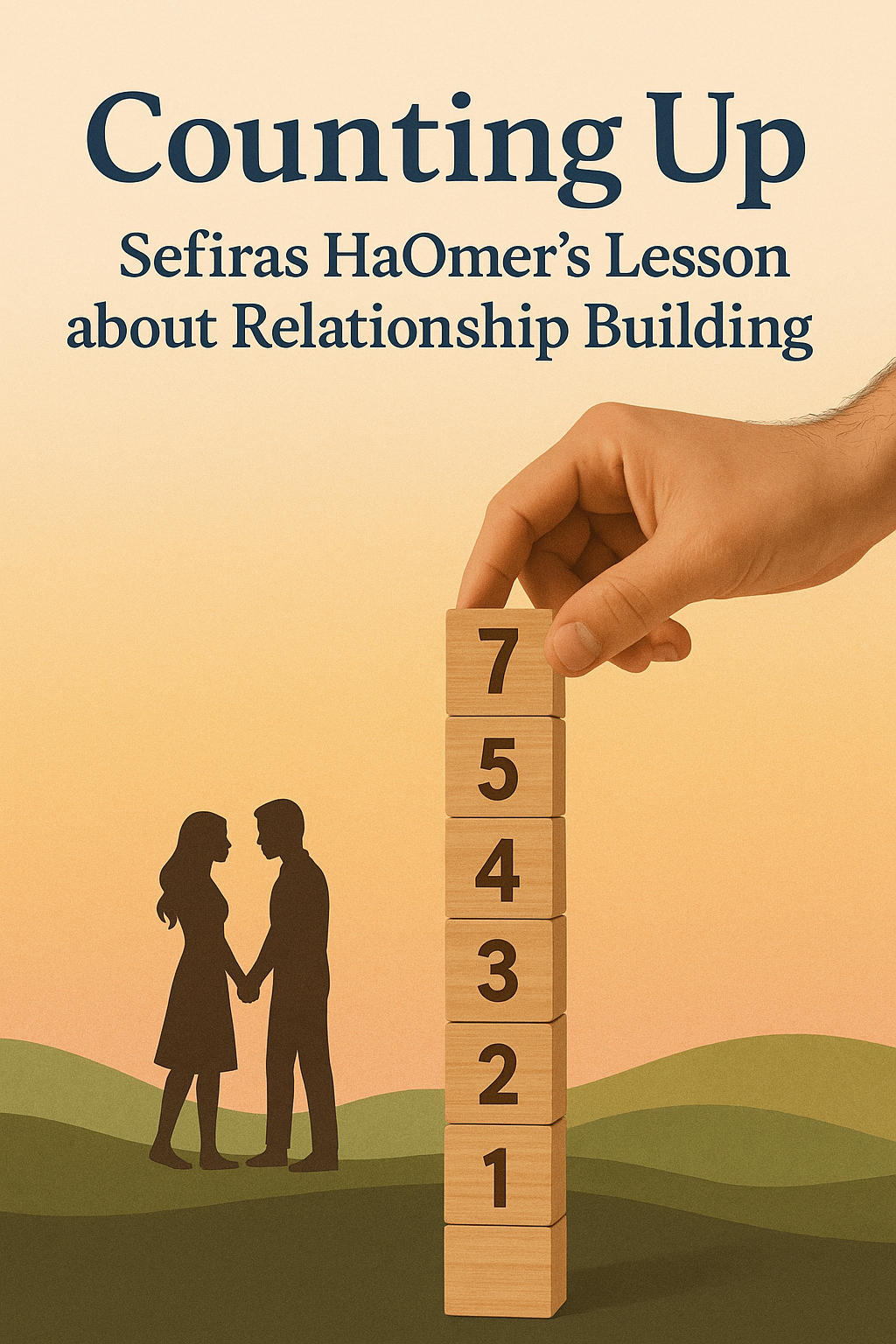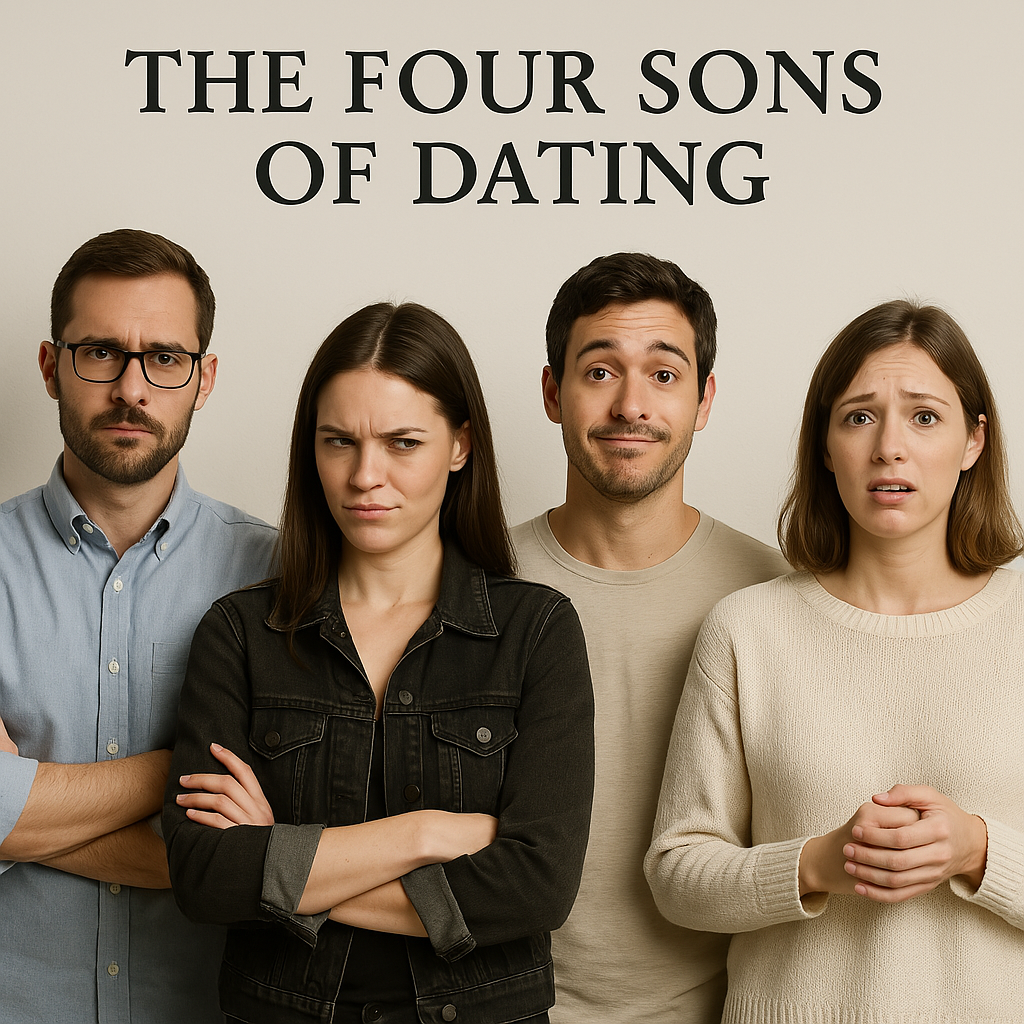Chat GPT and it’s Imperfectly Perfect Advice
In a world where vulnerability now comes with a blue tick or a “seen” receipt, it’s no wonder we’ve begun outsourcing our inner lives. Confused by a text? Anxious about a first date? Reeling after a breakup? Type it into a box. Press send. A perfectly coherent answer appears, faster than your best friend can voice note back, faster than your therapist can say “how does that make you feel?”
ChatGPT—wise, efficient, and always available—is becoming a new kind of confidante. For many, it’s the first stop for relationship advice. But is it a good one?
Let’s start with the obvious perks. ChatGPT is available 24/7. It doesn’t judge. You can pour out your insecurities at 2 a.m. in sweatpants, and no one will raise an eyebrow. It will help you name attachment styles, identify red flags, decode mixed signals. It remembers patterns. It’s read thousands of therapy manuals, self-help books, and Reddit confessionals. If you want your feelings translated into a clear, evidence-based narrative, it’s got you.
There’s also a freedom in being able to articulate things without fear of being seen as needy, dramatic, or unhinged. You can say, “I hate that he didn’t text me back after I told him something vulnerable,” and instead of hearing “you’re too sensitive,” you get back a paragraph validating your need for emotional reciprocity and even a nudge toward secure communication. It’s like therapy with the best parts of the human stripped away—no scheduling, no cost, no risk of disappointing your therapist with your spirals.
But therein lies the paradox. The best parts of humanity—messy empathy, embodied presence, moral complexity—are also what heal us.
Ask ChatGPT, “Should I break up with him?” and it might offer a thoughtful framework. But it can’t sit with you in your indecision. It doesn’t have a stake in your growth. It can’t intuit what you’re not saying. It can simulate listening, but not knowing. And in relationships, knowing—being known—is everything.
Even when ChatGPT gives great advice, the act of asking it can quietly undermine your inner compass. If we always outsource our hard moments to something trained on everyone else’s wisdom, when do we learn to trust our own?
There’s also the risk of confusing clarity with connection. ChatGPT can make your pain legible. It can offer clarity. But it cannot give you what you really need when you’re heartbroken: someone to hold space for your wordless ache. Someone who knows your voice cracking means more than what you’re saying. Someone whose face contorts when you cry. Someone who can point out to you that you’re mouth is saying one thing, but your body language is communicating something else entirely. Someone who doesn’t give you the “right” answer, but who sits beside you as you figure it out.
And then there’s this: relationships aren’t problems to be solved. They are lived, fumbled through, shaped in the friction of two human beings trying—imperfectly—to love. Sometimes, the most “rational” advice can bypass what is emotionally real. A machine might say, “He checks all the boxes,” but your gut knows it’s a no. Or it might say, “You’re incompatible,” when your heart says, “Wait—we haven’t really tried.”
To be clear, ChatGPT can be an incredible tool—especially when used thoughtfully. It can help you put language to the fog. It can synthesize ideas you haven’t fully formed. It can even reflect back your values in a way that strengthens your self-awareness.
But the danger is in mistaking it for the final word. It’s a mirror, not a map. A sounding board, not a soulmate. Therapy is a process of discovery, not just explanation. And real relationships, with friends, mentors, therapists, or partners, teach us how to live inside that discovery. They confront us, not just comfort us.
So if you’re turning to ChatGPT for advice, don’t feel ashamed. It means you’re trying to understand. But maybe ask yourself, too: Who else can I turn to? Who will challenge me, witness me, remind me that I am more than a string of patterns?
Ask ChatGPT. But then ask your friend. Ask your therapist. Ask yourself.
ChatGPT can offer answers—but it can’t offer presence. In the end, it’s not perfect advice that changes us. It’s being seen in our mess. It’s the people who stay, even when it’s hard, who teach us how to connect and be connected with in return.
The Cost of Not Appreciating the Process
There’s something almost intoxicating about the speed and precision of AI. In moments, it can write, translate, generate, and organize—tasks that once demanded hours, days, or even entire careers. It’s dazzling. Efficient. Practically magical.
What if I were to tell you that this blog post you’re reading right now was written by ChatGPT?
On the one hand, it shouldn’t matter. The ideas are mine. The message is clear, and the writing is polished and readable. In that sense, AI is a gift—it helps clarify, refine, and amplify messages worth sharing.
But on the other hand I wonder: what does that say about the journey this post has taken? Has the idea been wrestled with, mulled over during quiet nights, shaped by the slow, patient wisdom that life and experience offer? Or was it handed off too soon, polished by a machine before it could breathe and mature? Does it matter?
There’s no denying AI’s brilliance. It allows me to work smarter, freeing up time for what truly matters. But beneath the surface, there’s a quiet cost—not just to our thinking capacity, or even our authenticity. Maybe the problem isn’t even about results. Maybe we’re finally admitting that we’d rather produce something excellent with less effort. Maybe that’s just smarter, more realistic and productive.
No, the real danger is subtler:
The more we automate the messy parts of life, the more we come to believe that mess itself is meaningless. That if the results are impressive, the process doesn’t matter.
The process is messy. It unfolds slowly and unevenly, filled with doubt and missteps; discarded drafts and difficult conversations, long silences and tearful prayers. It’s the place where we run face first into walls, and then stand back up and learn how to climb them. It’s where we get stuck and where we reach out for help. It is where bonds are forged and deepened—not just with others, but with ourselves, and our faith too.
It is in this vein that I can’t help but see in AI a shadow of what the primordial snake was cursed with in the Garden of Eden: that he would eat from the dust of the earth – that he would always have anything he needed within reach. Nothing to chase. No hunger, no dependence, no journey but endless access. He would never have to struggle, never have to ask for help, never have to face his limitations and dare himself to overcome. He would never get to watch himself become different than who he was yesterday, all because he had been robbed of one thing: the process.
As kids, we’re told that effort is what counts. But then adulthood hits, and “A for effort” rarely cuts it. “Trying” won’t save your relationship. “Working on it” doesn’t soothe your grandmother when she asks why you’re still single.
It’s not news to anyone that there’s no overcoming without struggle—and that the cost of having things handed to you is the person you might have become. We say the journey is where we “grow” as if it’s a staircase to betterment. But what if that’s only half true?
Maybe it is us who are misunderstanding what the process is supposed to be,
What if the process isn’t only where we grow—
But more importantly where we discover what parts of us refuse to. Not as much a ladder as it is a mirror.
And nowhere is that truer than in relationships.
They’re filled with pauses that sting, misunderstandings that grate, silences that stretch too long. But these aren’t bugs in the system. They are the system.
We live in a culture that rewards outcomes: jobs landed, deals closed, weddings planned. But what about the quieter victories? Like noticing when you’re shutting down. Or choosing to stay in a hard conversation one minute longer. Or realizing your urge to blame is really just fear wearing another face.
Maybe being present in the process means asking something deeper than, “What’s wrong?”
Instead, try:
“What part of me is being exposed here?”
“What’s refusing to grow?”
I’m grateful for AI, truly. But I know that if I hadn’t sat here in front of this blinking cursor for all the time I did, I wouldn’t have seen through the clichés in my own argument. I wouldn’t have rearranged, rewritten, and wrestled with what I really meant to say. It was in these painfully slow, uncomfortable moments—facing myself—that I uncovered layers I wouldn’t have noticed if I’d rushed or outsourced the work. That process revealed what I was really struggling to say—not just what sounded good on the surface.
In an age where we can outsource everything from writing to recipe ideas to “what he really meant by that text,” it’s easy to crave clarity. We want clean answers. Diagnoses. Labels. A direct route to certainty.
But imagine if you were cursed to receive the perfect relationship—no effort, no misunderstandings, no moments of doubt. Nothing to work through. Nothing to stretch you.
No chance to ask:
What do I avoid saying because I want to be liked?
What stories do I tell myself about love, safety, or closeness?
Where do I flinch? Where do I soften? What am I afraid they’ll see?
No miscommunications to show us how we respond to hurt.
No silences that reveal how we tolerate the unknown.
No overreactions pointing us toward wounds we swore were already healed.
Relationships aren’t AI.
They can’t be skipped, hacked, or streamlined.
And thank G-d for that.
Counting Up – Sefiras HaOmer’s Lesson about Relationship Building
With Pesach dishes finally packed away and a glorious goodbye waved to the mountain of leftovers and never-ending matzah crumbs, we have all by now settled into the rhythm of counting the Omer—a 49-day practice spanning the second night of Pesach until the eve of Shavuot. This daily count marks our ancestors’ journey from Egypt’s darkness to the revelation at Sinai, and is mean to be a time for us to similarly prepare ourselves with our own impending encounters with something Divine at Shavuos. But beneath this simple ritual lies a powerful lesson about growth, readiness, and the slow work it takes to truly receive something meaningful.
Our Sages teach that the original 49-day journey that our ancestors walked—from the spiritual abyss of Mitzrayim to the transcendent moment of receiving the Torah at Sinai—wasn’t just about time passing. It was about who they were becoming with each day that passed. This was a generation still shaking off the dust of slavery, struggling to believe in their own worth, their capacity for relationship, for covenant, for closeness with something bigger than themselves.
They didn’t go straight from the murky depths of Egypt into the clarity of Torah. They stumbled their way forward. There were miracles—the splitting of the sea, the sweetening of the bitter waters, the manna falling from heaven. But there were also moments of real struggle—fights, complaints, confusion, even war. The journey was not one without its ups and downs – but they got there in the end.
And that’s what makes Sefira such a deeply relationship-oriented time of year.
Because if we’re honest, most of our relationships—romantic, platonic, familial—don’t unfold in perfect moments of clarity. They unfold in the in-between. In the messy middle. In the daily, sometimes unseen effort to become someone who knows how to connect and be connected to.
It’s tempting to crave immediacy. A spark on the first date. A deep talk that changes everything. A picture-perfect bond. But real relationships—like real freedom—aren’t born in a moment. They’re built over time. And like our ancestors in the desert, we too need a process to become people who can hold real connection, mutual respect, and the kind of love that isn’t performative, but transformative.
This isn’t just spiritual theory—it’s backed by science.
A 2020 study from Yale University found that people recovering from addiction show a disruption in their prefrontal cortex—the part of the brain responsible for decision-making. The very act of chasing instant gratification begins to rewire the brain, making it harder and harder to choose values over impulses, depth over escape. In relationships, this dynamic plays out when we prioritize short-term satisfaction over long-term emotional connection. The longer we indulge such destructive behaviors, the more difficult it becomes to trust and appreciate a genuine, deep, healthy relationship.
But here’s the good news: the study also found that the brain begins to heal. Slowly. Quietly. The longer someone abstains from the addictive behavior —even just a day at a time—the more those damaged neural pathways begin to reconnect. One day clean, two days clean, a week, two weeks. The small daily choices begin to rebuild the self from the inside out.
That recovery journey may feel far from romantic, but in truth, it’s a profound reflection of what real relationship-building looks like. We don’t become a safe person to love overnight. We don’t magically develop the ability to listen well, to communicate with patience, to stand our ground without tearing others down.
We build it.
One choice to respond instead of withdraw.
One moment of apologizing instead of justifying.
One act of kindness we weren’t in the mood for.
One conversation where we speak truth with gentleness instead of force.
These moments rarely look dramatic. But they repattern our capacity for intimacy. They teach our hearts how to trust. They show our minds a new way of staying present. Subtly, they rewire how we love.
And just like addicts receive chips marking milestones—one week clean, one month, two months—we too mark each small victory of emotional growth during Sefira. Today is four weeks and three days. It’s the same rhythm. The same humility. The same slow, upward climb. Because real change, whether in recovery or in love, doesn’t hit like lightning. It builds like a muscle. Quietly, and then all at once.
The sacrifice that used to be brought in the Temple on Shavuot, marking the end of our 49 day sefira journey was called the “Mincha Chadasha”— literally, the “new offering”. Our Rabbis explain that it isn’t just new grain that’s being brought. It’s a new self. The one forged in the daily, steady work of becoming.
That’s the challenge—and the promise—of the Sefira journey. Not just to count time, but to make time count.
So if you’re in the middle of a relationship, just starting one, or trying to prepare yourself for one that hasn’t arrived yet—pause for a second. Ask yourself: Who am I becoming right now? Am I a little more patient than I was a week ago? A little more grounded? A little more real?
Because love isn’t what happens when we find the right person.
It’s what happens when we keep becoming the right person—one day at a time.
The Four Sons of Dating
The Haggadah introduces us to four sons—each with their own way of approaching the Pesach story. And let’s be honest, we’ve probably dated all four of them. But beyond the humor, these archetypes offer insight into the different ways people show up in relationships and how we can navigate dating with more wisdom and self-awareness. No one fits perfectly into a single category, and even the “difficult” types often have redeeming qualities. But recognizing these patterns can help us make better choices, not just about who we date, but about how we date.
The Wise One
He asks deep, intentional questions. He wants to understand you, your values, your goals. He reads dating books, listens to relationship podcasts, and genuinely wants to build something meaningful. Dating him feels steady, thoughtful, and secure. He’s the kind of person who takes relationships seriously—sometimes to a fault.
The challenge? His desire to “get it right” can lead to overthinking. He sends follow-up texts analyzing your last conversation or seems to be looking for commitment unnaturally early. His wisdom is valuable, but if taken too far, it can make dating feel like a structured checklist rather than a natural, evolving connection. And sometimes, he struggles with emotional spontaneity. He wants to approach dating with intelligence, but relationships aren’t just intellectual exercises—they require heart, risk, and a little bit of unpredictability.
That said, his depth and sincerity are rare qualities. If he can learn to trust the process and let go of the need for control, he has the potential to build something real.
💡 Dating lesson: Appreciate wisdom, but don’t let analysis replace emotional connection. Relationships are built in the real world, not just in theory. If you’re dating someone like this, help him feel safe being present rather than always looking ahead. And if you’re the one stuck in analysis paralysis, remind yourself that love isn’t a perfect formula—it’s a lived experience.
The Wicked One
She knows the rules but doesn’t care. She plays games, avoids commitment, and somehow always keeps you guessing. Maybe she’s emotionally unavailable, or maybe she enjoys the chase more than the relationship itself. Either way, you’re left feeling drained.
Not every “wicked” dater is intentionally hurtful. Some have been hurt themselves, leading them to build walls rather than bridges. Others are still figuring out what they want, experimenting with different relationship dynamics, or just caught up in their own self-exploration. They might not even realize the impact they’re having on others. They’re not necessarily cruel, but they are self-focused in a way that makes genuine connection difficult.
The real issue is that dating someone like this can lead you to internalize their ambivalence. If they’re inconsistent, you might find yourself constantly analyzing their actions, looking for hidden signs of interest, or making excuses for their behavior. The truth is, if someone really values you, you won’t have to guess.
💡 Dating lesson: Don’t try to change someone who isn’t showing up for you. If someone makes you feel uncertain or undervalued, that’s your sign to walk away—not because they’re inherently bad, but because a healthy relationship requires two people who are equally invested. If you find yourself stuck in a cycle of hoping someone will come around, ask yourself: Are you waiting for something that may never happen? And is that the kind of love you truly want?
The Simple One
He’s kind, easygoing, and means well—but he’s not exactly intentional. He goes with the flow, doesn’t think too far ahead, and isn’t sure what he wants. He likes you, but if you ask where things are going, he shrugs. He’s not playing games, but he’s not leading the way either.
The simple dater can be frustrating because he’s almost what you want—sweet, present, and not intentionally hurtful. But without clarity and direction, you might find yourself stuck in a cycle of “seeing where things go” instead of actively building something real. And that can be even more painful than outright rejection. It’s hard to walk away from something that kind of works, even when deep down, you know you need more.
That said, not everyone who lacks direction is a lost cause. Some people need time and encouragement to develop clarity. If he’s open to growth and willing to engage in real conversations about the future, he may surprise you. But if he consistently avoids these conversations or leaves you feeling uncertain, it’s worth asking yourself whether waiting around is in your best interest.
💡 Dating lesson: If you’re looking for a serious relationship, clarity matters. A relationship without direction won’t magically find one. If someone isn’t willing to take the next step, you don’t have to wait around hoping they’ll figure it out. But before writing someone off, consider whether they’re truly indifferent or just need help articulating what they want.
The One Who Doesn’t Know How to Ask
Se wants to connect but doesn’t know how. Maybe she struggles with communication, has never been in a serious relationship, or isn’t sure how to express her feelings. She’s a good person, but understanding her can feel like solving a puzzle.
There are different types of daters who “don’t know how to ask.” Some are simply inexperienced and need time to learn. Others may have deeper struggles—whether social anxiety, past trauma, or emotional barriers that make vulnerability difficult. They might want love but feel too afraid to step into it fully.
Dating someone like this requires patience, but it also requires boundaries. If you’re constantly guessing what they’re thinking, trying to coax emotions out of them, or making excuses for their lack of effort, that is not a sustainable dynamic. Relationships work best when both people are willing to show up, even when it’s uncomfortable.
On the flip side, if you’re someone who struggles to express yourself, know that relationships require some level of openness. No one can read your mind, and if you want to build something real, you have to take risks.
💡 Dating lesson: Communication is key. If you feel like you’re always guessing what the other person is thinking, that’s not sustainable. Relationships require mutual effort. If you’re dating someone who struggles with communication, be patient but also honest about your needs. And if you’re the one who finds communication hard, ask yourself: What small steps can you take to bridge that gap?
At its core, the Haggadah teaches us that every person has a different way of engaging with the world. Some are proactive, some are distant, some are uncertain. And sometimes, we even embody different aspects of these four sons at different points in our own dating journeys.
The real question is: What patterns have you fallen into? Are you constantly giving the benefit of the doubt to someone who isn’t showing up for you? Are you getting stuck in analysis paralysis? Are you waiting for clarity from someone who isn’t offering it? Can you approach dating with intention, honesty, and self-respect?
Pesach reminds us that we don’t have to be stuck in the same patterns year after year. The same way Bnei Yisrael broke free from slavery and stepped into something new, you have the power to rewrite your dating story. The right person won’t leave you questioning your worth or your future. So this Pesach, take a moment to ask yourself: What kind of person do I truly want to build a future with? And am I making space for that person in my life?
Spring Cleaning for Your Dating Life
Pesach is all about cleaning—getting rid of chametz, scrubbing every corner, and making space for something fresh. But what if we applied that same energy to dating? Just like we search for hidden crumbs, maybe it’s time to clear out emotional clutter and lingering baggage that’s been weighing us down.
Think about your dating life—are you holding onto old stories, past heartbreaks, or limiting beliefs? Maybe you’ve told yourself, I always attract the wrong people, I’ll never find someone who understands me, or I have to settle to make this work. These thoughts are like crumbs stuck in the cracks, small but significant. They shape how we see ourselves and how we approach relationships.
We don’t always realize how much emotional “clutter” we accumulate over time. Maybe you’ve been replaying a failed relationship in your head, wondering what you could have done differently. Or maybe you’ve adopted a more cynical outlook after disappointing experiences, bracing yourself for rejection before giving someone a real chance. Just like Pesach cleaning leads us to check places we normally overlook, this is an opportunity to examine the subconscious fears or insecurities that might be shaping your dating life.
So, this Pesach, let’s do a dating deep clean:
- Identify the chametz. What beliefs, habits, or experiences are you holding onto that no longer serve you? Are you stuck in a cycle of dating people who aren’t right for you? Are you holding onto resentment toward an ex? Sometimes, the biggest thing we need to clean out isn’t external—it’s internal.
- Check for hidden crumbs. Emotional baggage doesn’t always show up in obvious ways. Maybe you find yourself shutting down when someone gets too close, or maybe you overthink every text because of a past rejection. Take some time to notice the subtle patterns that might be affecting your relationships.
- Make space for something new. Cleaning isn’t just about getting rid of the old—it’s about making room for something better. What would it look like to approach dating with fresh energy, open-mindedness, and self-respect? What would happen if you let go of the need to control outcomes and just allowed yourself to enjoy the process?
One of the most powerful parts of Pesach is its theme of liberation. We aren’t just commemorating freedom from physical slavery—we’re reflecting on what it means to be emotionally and spiritually free. The same way Bnei Yisrael had to leave behind everything they knew to step into the unknown, sometimes we have to release old narratives to allow for new possibilities.
So as you’re vacuuming corners and scrubbing counters, take a moment to ask yourself: What do I need to clean out of my dating life to move forward? What thought patterns, habits, or expectations do I need to let go of to create the kind of relationship I truly want? Because just like Pesach reminds us every year, true freedom begins when we let go of what’s been holding us back.
Purim: When Relationships are Messy
Purim is a celebration of hidden miracles and unexpected heroes. But it’s also a story of messy, imperfect relationships—where love, duty, fear, and courage all blur together. At the heart of it all is Esther: a woman caught between worlds, trying to navigate connections that are anything but simple.
Esther didn’t choose to be queen. She was taken from her home and thrust into a palace where power dynamics overshadowed any sense of genuine connection. Her relationship with Achashverosh wasn’t built on love, trust, or mutual respect. It was complicated, transactional, and left Esther powerless and unseen.
And yet, within that imperfect reality, Esther didn’t lose herself. She didn’t passively accept her situation or ignore the risks around her. Instead, she found a way to reclaim her voice and make choices with intention and purpose. She didn’t stay silent out of fear or convince herself that everything was fine. When Mordechai urged her to speak up, she took time to reflect, gather her courage, and act deliberately.
Courage Amid Complexity
Purim teaches us that relationships don’t have to be perfect to hold purpose and potential. Sometimes we get caught up in thinking that if a relationship isn’t entirely healthy or ideal, it’s not worth our energy. But Esther’s story shows that even when things aren’t perfect, we can still take ownership of our role within them. It doesn’t mean accepting hurt or staying in harmful dynamics—it means choosing how to respond with wisdom and strength.
There’s a difference between tolerating a bad situation and finding a way to navigate it with integrity. Esther knew that Achashverosh’s behavior was problematic, but she didn’t let that reality paralyze her. Instead, she made a plan, took calculated risks, and leaned on her inner strength. She didn’t just react to her circumstances—she rose to meet them.
Owning Our Choices
Not all relationships are meant to last, and not all challenges are worth enduring. But sometimes we hesitate to show up or speak out because we’re waiting for the “right” conditions. Esther teaches us that courage means taking responsibility even when the situation isn’t perfect. It’s about choosing to act with integrity despite feeling uncertain or scared.
This Purim, reflect on the relationships in your life that feel messy or complicated. Instead of writing them off as failures or flaws, ask yourself:
- How can I reclaim my voice within this dynamic?
- What choices are mine to make, regardless of how others act?
- Am I holding back from speaking up because I’m afraid of the outcome?
And if you find yourself stuck or overwhelmed, consider seeking relationship counseling—not because it means admitting defeat, but because it’s a step toward clarity and growth. Sometimes the most courageous thing you can do is ask for help, take ownership of your story, and choose to move forward.
Purim isn’t about accepting imperfection—it’s about celebrating the unexpected ways courage can emerge from chaos. It’s a reminder that even in the most tangled situations, there’s potential for transformation and redemption. Esther’s story isn’t just about surviving a difficult reality—it’s about stepping into a role that seemed impossible and making choices that shaped the future of an entire nation.
This Purim, let’s celebrate the power of resilience, the courage to speak up when it matters, and the wisdom to find purpose even in uncertain times. Just as Esther’s bold choices forever altered the course of history, so too may we summon the strength to transform our own stories, no matter how daunting it may seem.
Lost in Translation: Are You Really Being Heard?
We all want to feel heard. Whether it’s a partner, a friend, or a family member, there’s something deeply validating about knowing that someone understands us—not just our words but the emotions and needs behind them.
But what happens when you don’t feel heard? When you leave conversations feeling frustrated, unseen, or misunderstood? It can be one of the most isolating feelings in a relationship.
Here’s the good news: there are ways to help others hear you better, without resorting to blame or frustration.
If you’ve ever felt like:
- The other person interrupts or talks over you.
- They jump to advice instead of listening to what you’re really saying.
- They seem distracted or disengaged.
- They brush off your emotions or tell you to “just relax.”
…you’re not alone. These moments can feel small, but over time, they add up to a bigger issue: disconnection.
Feeling heard starts with how you communicate. Here are some practical tips to make sure your voice is truly being heard in your relationships:
- Be Clear About What You Need. It’s easy to get frustrated when someone doesn’t “get it,” but often, the problem is that we assume people know what we want. Be upfront. Say, “I don’t need advice right now—I just need to talk this out,” or, “It would really mean a lot if you could just listen for a minute.”
- Pick the Right Time. If the person you’re talking to is distracted, stressed, or in a hurry, it’s harder for them to listen fully. Say something like, “I need to talk about something important. Is now a good time, or should we find another time?”
- Speak with Vulnerability. It’s hard to listen when someone’s tone feels accusatory or defensive. Instead of saying, “You never listen to me,” try, “I feel like I’m not being understood, and it’s hard for me to open up when I feel that way.” Vulnerability invites connection.
- Notice Who Does Hear You. Sometimes, we spend so much energy trying to get one person to hear us that we forget to appreciate those who already do. If there’s someone in your life who makes you feel seen, lean into that relationship—it’s a gift.
What to Do If You Still Don’t Feel Heard
- Pause and Reflect. Is this a one-time issue, or a recurring pattern? If it’s the latter, it might point to a deeper incompatibility in communication styles or emotional priorities.
- Consider Outside Support. If you’re in a relationship and feel like communication is consistently breaking down, talking to a mentor, rabbi, or therapist can help bridge the gap.
- Know When to Walk Away. Feeling heard is a basic emotional need. If someone repeatedly dismisses your feelings or shuts you down, it may be time to reevaluate whether the relationship is serving you.
Reflect on your own relationships. Is there someone in your life who consistently makes you feel heard? Take a moment to appreciate them—maybe even let them know how much that means to you.
And if there’s someone with whom you feel unheard, ask yourself: What’s one small step I can take to change that dynamic? Can I be clearer, more vulnerable, or more patient?
Who do you feel heard by, and what makes them stand out? Let’s talk about it in the comments.
All My Eggs in One Basket: What the Egg Shortage Taught Me About Relationships
If you’ve been to the grocery store recently, you may have noticed the rising cost of eggs—or worse, an empty shelf where they should be. The egg shortage has forced people to rethink their meals, find creative substitutes, and realize that maybe they were relying too much on one simple ingredient. Funny enough, relationships work the same way. Whether it’s learning how one bad experience can skew our perception or realizing that our ‘must-haves’ in a partner might not be as essential as we thought, the lessons from the egg shortage go far beyond the kitchen.
“The Rotten Egg Effect”
Ever cracked an egg, only to be hit with a rotten smell that makes you want to throw away the whole carton? It’s unsettling, unexpected, and makes you question the quality of the rest. The same thing can happen in relationships—one toxic experience can leave such a strong impression that it clouds how we approach love moving forward.
Maybe you dated someone who was emotionally unavailable, and now you assume every potential partner will let you down. Or maybe you were in a controlling relationship, and now any request feels like a red flag. The problem? If we let one bad experience dictate our future, we risk pushing away healthy relationships that don’t deserve our skepticism.
The key to moving past the “rotten egg effect” is recognizing that not all relationships—or people—are the same. Yes, patterns exist, and yes, we should learn from our experiences. But healing requires perspective: just because one egg was bad doesn’t mean you swear off omelets forever. Take time to heal, reframe your expectations, and remind yourself that good, healthy relationships do exist—you just have to be open to them.
How to move past the “rotten egg effect”:
- Recognize the pattern, but don’t assume it’s universal. If someone hurt you, reflect on what you need to look out for moving forward, but don’t project their flaws onto someone new.
- Challenge your assumptions. Are you truly seeing red flags, or are you reacting from past wounds? Are you holding back from giving someone a real chance because you’re afraid of repeating history?
- Give yourself permission to start fresh. Healing means allowing yourself to believe in love again. Does finding a bad egg in the supermarket make you assume that your future egg purchases will be similarly tainted? On the contrary! Now you know more about how to spot those rare bad eggs than ever—what they smell like, what they look like—and you are only more confident and better equipped to avoid them in the future.
Rising Without Eggs
Ask any baker and they’ll tell you—eggs are essential. They bind ingredients, add richness, and help everything rise. But when an egg shortage hits, creative bakers don’t throw in the towel—they find alternatives. And guess what? The cake still rises.
The same is true for relationships. We all have “must-haves” when searching for a partner—whether it’s a specific personality trait, lifestyle choice, or background. But sometimes, the things we think are essential aren’t actually deal-breakers.
Maybe you always imagined dating someone extroverted, but the quiet, thoughtful person you’re seeing makes you feel more at peace than anyone else ever has. Maybe you assumed you’d only date within a specific career path, but someone outside of that world brings you a refreshing new perspective. The key is knowing the difference between values that truly matter and expectations that might be holding you back from something great.
Just like a good cake can still be made without eggs, a fulfilling relationship can exist even if it doesn’t check every box on your original list. The question isn’t whether a relationship looks exactly as you pictured—it’s whether it’s bringing you joy, growth, and genuine connection.
How to rethink your relationship ‘must-haves’:
- Differentiate between values and preferences. Core values—like integrity, kindness, and emotional availability—are essential. But surface-level traits, like a specific career path or personality type, might not be as crucial as you think.
- Ask yourself what truly makes you happy. Are you holding onto certain expectations because they actually serve you, or just because they’re familiar?
- Stay open to unexpected possibilities. Sometimes, the best relationships come in packages you never saw coming. The question isn’t whether someone checks all the boxes—it’s whether they make you feel loved, understood, and supported.
The egg shortage might be frustrating, but it’s also a lesson in flexibility. We learn to navigate around scarcity, rethink what’s truly essential, and recognize that one bad egg doesn’t mean the whole system is broken. The same applies to relationships. One negative experience shouldn’t ruin your outlook on love, and a rigid list of ‘must-haves’ might be limiting your chances of finding something truly fulfilling.
So the next time you’re at the grocery store staring at an empty shelf, remember: just like in relationships, your capacity for creativity and adaptability might just surprise you.
The Lost Art of Listening: How to Truly Hear and Connect
We all think we’re good listeners. But if we’re being honest, how often are we truly present when someone is speaking? In relationships, especially in dating, listening is one of the most underrated skills—and yet, it’s the glue that can hold everything together.
True listening isn’t just about hearing words; it’s about understanding the emotion behind them and making the other person feel safe and valued. It’s what turns surface-level conversations into real connections.
The truth is, most of us don’t listen to understand. We listen to respond. We’re busy preparing what we’ll say next or thinking about how the story relates to us. Add in distractions like phones, stress, or general impatience, and the result is often superficial conversations that don’t deepen the relationship.
But listening—really listening—is about being present in someone else’s world for a moment, even if it’s messy, emotional, or uncomfortable.
Here are a few ways to show up as a listener:
- Be Fully Present. This sounds simple, but it’s harder than it seems. When your partner (or anyone else) is talking, put down your phone, close your laptop, and make eye contact. Your presence sends the message that they’re important.
- Listen Without an Agenda. So often, we listen with the intent to reply or solve a problem. But true listening isn’t about fixing—it’s about understanding. Hold back on giving advice unless they ask for it.
- Reflect Back What You Hear. Sometimes, just saying, “It sounds like you’re really frustrated about work,” or “I hear how much this means to you,” can make someone feel deeply validated.
- Ask Questions That Show You Care. Move beyond surface-level questions like, “How was your day?” Instead, ask, “What’s been on your mind lately?” or “What’s something you’re excited about right now?”
- Don’t Interrupt. It’s tempting to jump in when you think you know what someone’s about to say, but resist that urge. Let them finish their thought before responding.
In dating, listening isn’t just a skill; it’s a way to build trust and connection. When you truly listen, you’re sending a powerful message: “I care about your thoughts and feelings. I want to know you.”. We often are over eager to offer unhelpful or unasked for advice because we assume the person sharing with us is looking for some kind of response, some answer that you’re uniquely suited to provide them with. Maybe that’s true, but try entertaining the possibility that all they’re asking from you in the moment is to truly absorb what they’re saying. Whatever they’re choosing to share with you was an intentional decision to communicate a piece of themselves, before jumping in to respond, pause and ask yourself – why are they sharing this with me? What do they want me to understand about them? Not sure? Keep listening!
Listening also helps you understand the deeper layers of someone’s personality—what makes them tick, what they value, and what they need in a relationship. And that understanding is what sets the foundation for something real.
Too Much, Too Soon? Avoiding Oversharing on Dates
Dating is a dance of discovery—a journey where two people slowly reveal their stories, quirks, and dreams. Yet knowing how much to share and when can be one of the trickiest aspects of building a connection. Oversharing can feel like emotional whiplash for the listener, while undersharing might leave them feeling like they’re grasping at straws to understand you. Finding the sweet spot between these extremes requires self-awareness, sensitivity, and a willingness to adapt.
We’ve all been there—you’re sitting across from someone new, and the conversation takes an unexpectedly deep dive. Before you know it, they’re pouring out every detail of a painful breakup or sharing their deepest insecurities. It can leave you feeling stuck. You might clam up, unsure of how to respond without making things even more awkward. Alternatively, you might feel a pressure to keep your dynamic balanced by sharing something equally vulnerable about yourself, even if you weren’t ready to share something so personal.
Oversharing can feel overwhelming because it skips over the natural process of building trust. Vulnerability is a beautiful part of connection, but when it happens too soon, it can leave one person carrying the emotional weight of the conversation. And when trust hasn’t yet had time to grow, it can make you question whether this person is really ready to build a balanced and reciprocal relationship.
On the flip side, sharing too little can make it hard for your date to feel connected to you. Relationships are built on trust, and trust grows when people open up about their thoughts, feelings, and experiences.
If you’re too guarded, your date might interpret your silence as disinterest or emotional unavailability. They might wonder if you’re truly invested in the connection or if there’s something you’re hiding. While it’s natural to want to protect yourself, it’s important to recognize that withholding too much can stall a relationship’s natural growth.
Tips for Sharing Information Thoughtfully
So, how do you navigate this balancing act? Here are a few strategies to help you share information in a way that feels authentic and appropriate:
- Pace Yourself: Think of sharing as peeling back layers of an onion. Start with lighter topics—your hobbies, favorite memories, or goals. As trust grows, you can gradually delve into deeper, more personal subjects.
- Read the Room: Pay attention to your date’s responses. If they seem engaged and reciprocate with their own stories, it’s a sign they’re comfortable. If they appear overwhelmed or change the subject, it might be a cue to dial back.
- Focus on Reciprocity: Healthy sharing is a two-way street. If you’ve been talking about yourself for a while, pause and ask your date about their experiences.
- Ask Yourself Why: Before sharing something deeply personal, ask, “What’s my goal here?” If it’s to build intimacy or share something relevant to the conversation, go ahead. If it’s to seek validation or unburden yourself, consider whether this is the right time or person.
- Respect Boundaries: Everyone has different comfort levels when it comes to sharing. Be mindful of your date’s boundaries and communicate your own if necessary.
As you navigate the world of dating, take time to reflect on your own sharing habits. Are you someone who dives in headfirst, or do you keep your cards close to your chest? What lessons have your past experiences taught you about vulnerability and connection?
The beauty of relationships lies in the gradual unfolding of two people’s stories. By sharing at a pace that feels natural and respectful, you create the foundation for a connection that’s both meaningful and enduring.
So, the next time you’re sitting across from someone new, take a deep breath and remember: intimacy isn’t built by unloading your entire life story right away or by guarding it so tightly that no one can get close. Rather, healthy communication is about finding that middle ground where sharing feels natural and mutual, and building upon that foundation brick by brick – together.









